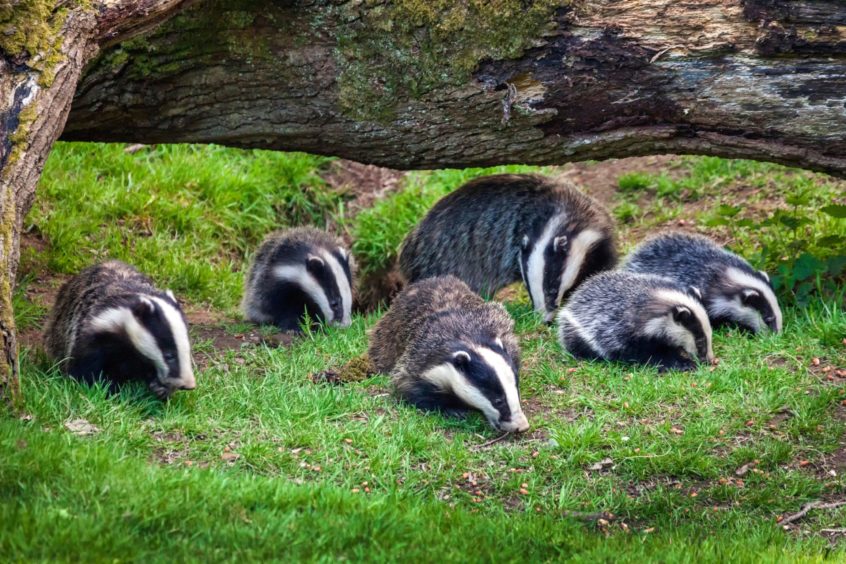An Aberdeenshire solicitor and her husband have made it their mission to help animals and birds lying on the roadside – and get others to do the same.
Hannah and Ryan Darnell started Wildlife First Response in September after becoming disheartened by seeing so many animals and birds lying dead at the side of the road.
The couple, having both worked in the police, volunteered for the New Arc by transporting injured wildlife to the centre.
Through their volunteering, they were able to work out what equipment was useful to keep in their car when assisting wild animals and birds.
Now they have created Wildlife First Response Kits that people can carry in their cars incase they come across an injured animal.
Mrs Darnell, who now works as a solicitor and volunteers as a fundraiser for Willows Sanctuary, said: “We always had bits and pieces in the back of the car; boxes, gloves, and things like that.
“I always thought to myself ‘if I need this in my car then I’m sure there are other people who would also benefit from having a sort-of purpose-built kit in theirs’. It might also encourage people to take action if they do come across an injured animal or bird in the course of their travels.”
Encouraging people to take the first steps
Mrs Darnell stressed it is not an animal first aid kit, instead, it is designed to encourage people to take the first steps.
She urged them to always contact a local wildlife centre or vets first for advice.
“Lots of people will think they’re doing something for the best,” she said, “and they will have the animal or bird’s best interests at heart but actually it can cause harm.
“For example, if people try to feed the creature, or give it water they can often cause harm if it’s not the right food or if it’s too much water and they can drown.”
The kit comes with links to databases that contain details of wildlife rescues across the UK so that road users can easily find out who to contact.
After getting advice from a professional, items from the kit can then be used to secure the injured animal or bird and then transport them for treatment.
It contains collapsable boxes and pillowcases which can be used for transportation and gloves for handling them, as well as pliers and scissors incase the creature simply needs to be cut free.
There is also a high-vis vest so other road users can see the person clearly, along with a human first aid kit.
Road casualties provide ‘invaluable’ data
Mrs Darnell, who said we are in a “biodiversity crisis”, highlighted that reporting dead animals and birds to the correct organisation can gather “invaluable” data.
For example, Scottish Badgers will record where a badger has been killed and plot it on a map to see if there are any trends and to find accident hotspots.
Saving Scotland’s Red Squirrels also collate sightings and add the accidents to their records while more locally, North East Scotland’s Biological Records Centre holds a database of information about wildlife sightings dead and alive, and use this to track trends.
Mrs Darnell drives to Turriff for work and said that in the space of three weeks, she noticed two dead otters on the A947 Aberdeen to Banff road.
After doing some research, she found that the International Otter Survival Fund conducts post-mortems on otters killed on the road at Scotland’s Rural College.
This allows them to gather information about the otters to get a better picture of their environment and anything that could be impacting them. She picked up the dead otters and took them to Craibstone to be examined and recorded.
‘There isn’t somebody else – it is you’
In that instance, Mrs Darnell used a collapsible snow shovel from the kit to move the otters from the roadside.
Even simply moving the body off the roadside helps to prevent further casualties as scavenger birds and animals are at risk of being struck by a car as they try to feed.
“The data that can be gained from dealing with a road casualty can be invaluable to understanding the environmental climate,” she said.
“That’s what we’re trying to get across; please don’t turn a blind eye. There is something you can do, it’s just maybe you’re not aware of it and you maybe don’t have the confidence to know what’s best to do.
“I think there’s a lot of people who think ‘someone else will deal with this’ and that’s what we’re trying to change. There isn’t somebody else – it is you. You need to deal with this.”
Although the council sometimes pick up dead animals from the roadside, these bodies are incinerated and all the data is lost.
The couple stressed that road users should never put themselves at risk to move an animal or bird that has been killed because they are often found on awkward bends and areas with low visibility.
